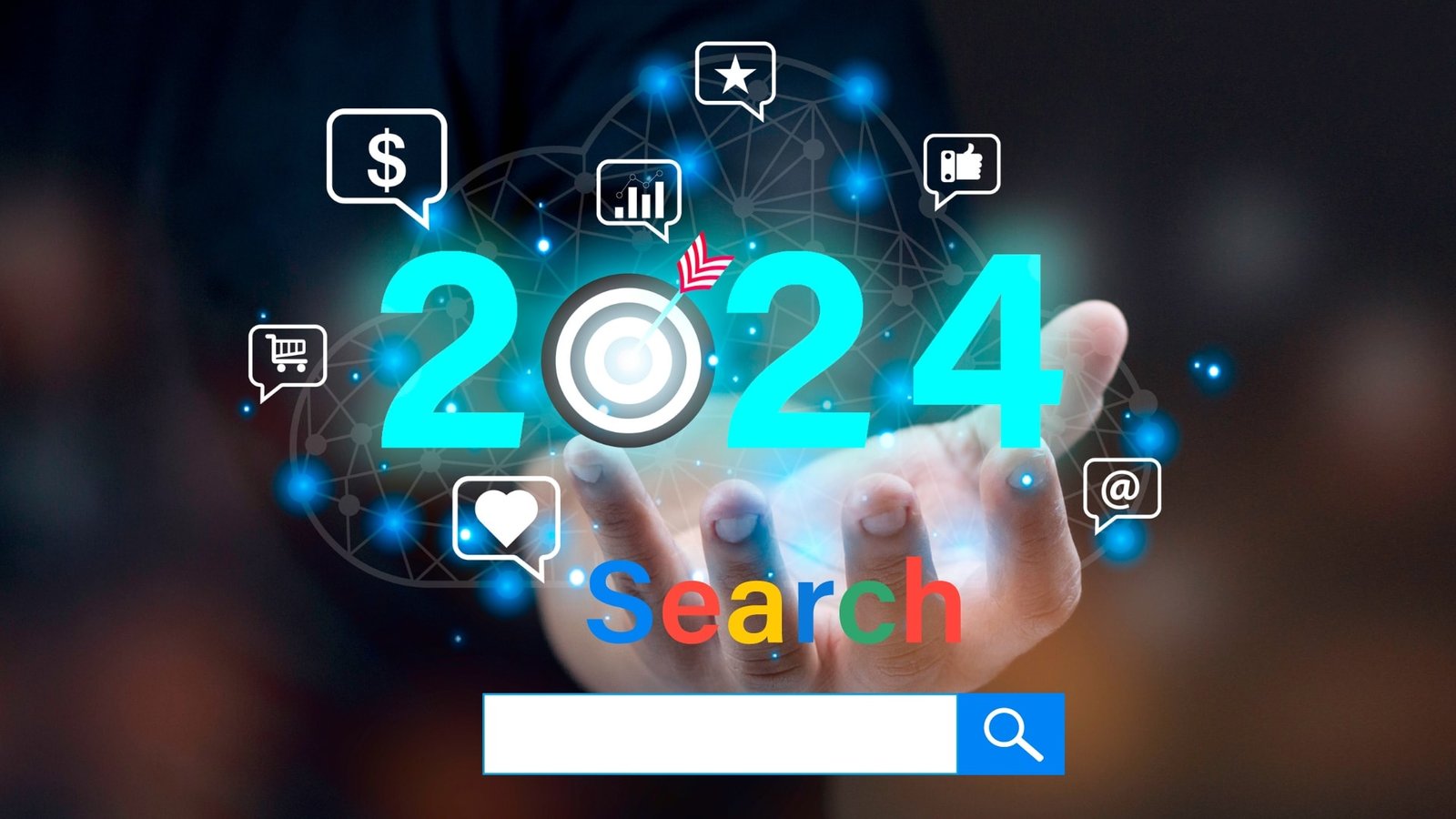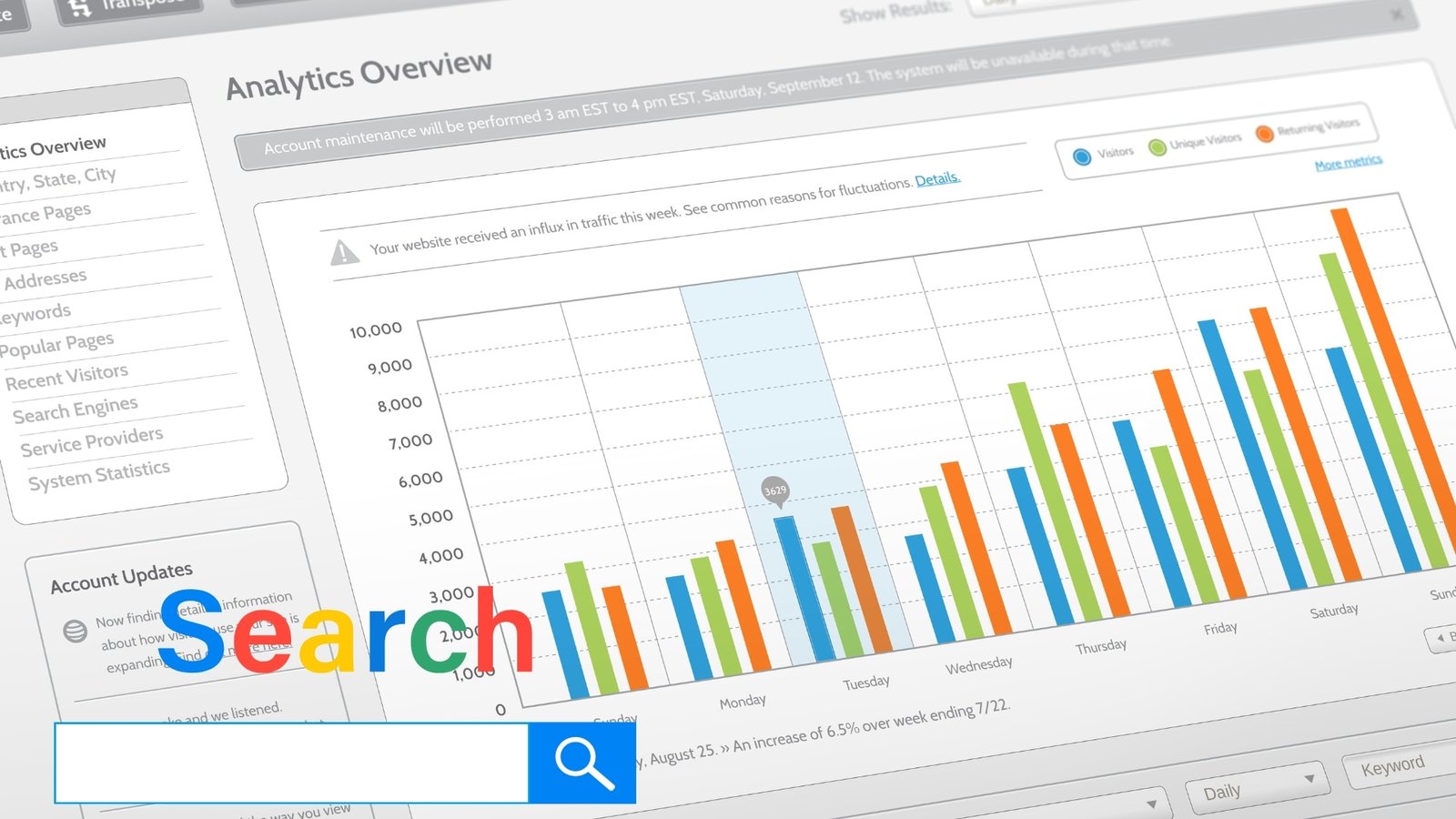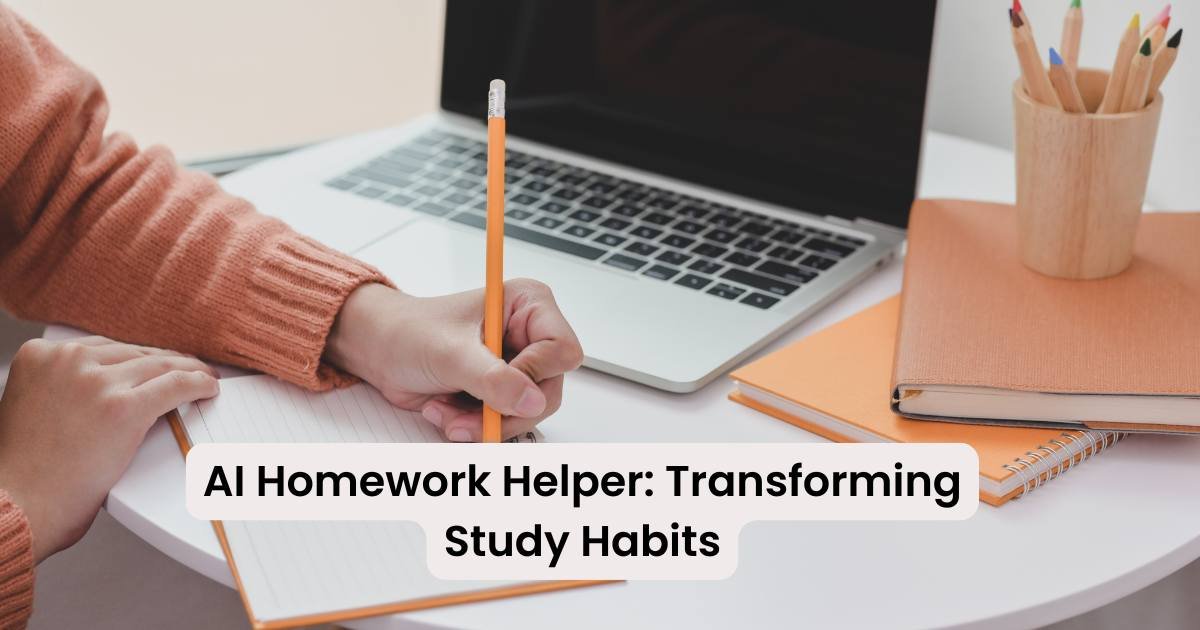Artificial Intelligence – The Intriguing Enabler
I think it’s safe to say that the integration of artificial intelligence software (AI) tools has become a critical component for businesses looking to stay competitive and innovative. The demand for AI tools is on the rise, with companies across various industries seeking to leverage the power of AI for enhanced decision-making, efficiency, and customer experience.
In this blog post, I want to share my research into the top searches for AI tools, providing insights into their popularity, applications, and strategic importance in digital transformation initiatives.

Understanding AI Tools of Today: An Overview
Today there are plenty of AI automation tools being launched every week. This is great, as these tools are able to drive automation, improve decision making and support process optimization in ways that we have not seen before. Selecting the right tools for the business can be both scary, confusing and exhilarating.
All of these tools simplify the way we work in a variety of ways. But we need to understand and recognize that each tool presents unique possibilities for innovation and growth. We need to understand that these AI tools are not a one-size-fits-all solution.
Rather, they encompass a diverse spectrum of technologies, including AI powered tools and Deep Learning platforms, each with specialized functions designed to address specific business challenges.

As a foundation, these AI solutions work on machine learning tools and algorithms as well as natural language processing capabilities, which enable machines to learn from data, adapt to new inputs, and perform human-like tasks with remarkable efficiency.
Let’s look at some Examples
For example, if we look at customer buying patterns. AI tools for customer service can learn customer behaviors and can predict what customers need and where they will buy. So now sellers can target the right customers at the right time and sell at the right price. It’s a win-win for both the customer and the vendor.
However, the AI landscape extends far beyond these core technologies which includes sophisticated systems for computer vision, robotic process automation, and predictive analytics software. This diverse technological ecosystem offers businesses the tools to automate complex processes, extract insights from vast data sets, and engage with customers and employees in more meaningful ways.

What is Natural Language Processing?
So, let’s break it down – Natural Language Processing (NLP) is a field of artificial intelligence that focuses on the interaction between computers and human language. Think of it as a system that involves teaching machines to understand, interpret, and generate human language in a way that is both meaningful and useful.
Natural Language Processing tools combines computational linguistics with machine learning to process and analyze large amounts of natural language data. Applications of NLP include language translation, sentiment analysis, speech recognition, chatbots, and text summarization. The goal of NLP is to enable computers to perform tasks that typically require human language understanding.

Selecting AI tools based on Business Objectives
The selection process requires a deep understanding of how different AI technologies, including various AI models, work and their potential impact on operations, customer service, and competitive positioning. It involves not just a technical assessment but also a strategic vision for how AI can enhance capabilities, drive innovation, and create value.
While trying to understand these AI tools, the importance of scalability, integration capabilities, and ethical considerations are factors to be considered . Businesses must ensure that the AI tools they choose not only meet their immediate needs but are also capable of evolving with the organization and the broader digital ecosystem.
Furthermore, ethical use of AI, focusing on transparency, fairness, and privacy, is critical in building trust and fostering sustainable relationships with customers and stakeholders. With all this power comes responsibility. Using these tools responsibly is paramount.

Unveiling the Top Searches for AI Tools
As we move to a focused examination of the top searches for AI tools, it becomes evident that organizations are in pursuit of cutting-edge solutions to reimagine AI tools for business, operational excellence, enrich customer engagement, and sharpen their strategic foresight.
Generative AI tools are versatile resources that enhance productivity across various email platforms and professional fields. These tools not only assist with composing and responding to emails but also generate a wide range of content, including text, images, and audio, benefiting a diverse array of industries and job roles.
The array of tools that have captured the collective interest of the digital sphere are emblematic of the diverse potential that AI harbors to revolutionize industries.
-
Predictive Analytics: At the forefront of these searches are AI platforms that excel in predictive analytics, offering companies the predictive insights needed to preempt market trends, customer behaviors, and potential operational bottlenecks.
-
Intelligent automation tools: These AI productivity tools promise to streamline workflows, thereby liberating human talent to focus on more creative and strategic endeavors. Such tools not only optimize productivity but also foster a culture of innovation by automating mundane tasks.
Not Forgetting…
-
CRM Systems: Another category that emerges prominently from these searches includes AI-driven customer relationship management (CRM) systems and AI tools for marketing. These platforms are designed to personalize the customer experience at scale, leveraging data to tailor interactions and offers in real-time, thus fostering loyalty and enhancing customer satisfaction.
-
AI chatbots and virtual assistants: There has been a surge in demand for 24/7 customer service solutions that can engage users with a level of responsiveness and personalization previously unattainable.

-
Natural Language Processing Tools: Not to be overlooked, AI tools specializing in natural language processing (NLP) are also among the most sought-after. Their ability to decipher human language and sentiment offers unprecedented opportunities for businesses to analyze customer feedback, automate content creation, and enhance communication both internally and with their customer base. AI generates complete articles, presentations, and unique images based on user input, illustrating the efficiency and creativity of AI in simplifying tasks and boosting productivity.
-
Machine Learning Tools: Lastly, the realm of machine learning tools garners significant search volume, underscoring an appetite for systems that can learn, adapt, and evolve alongside a business. These platforms are the backbone of many AI tools, enabling a broad spectrum of applications from fraud detection to personalized recommendations, thereby acting as a catalyst for data-driven decision-making and innovation.
Together, these top searches paint a picture of a business ecosystem eager to embrace AI’s transformative potential. Each tool represents a unique opportunity to advance operational efficiency, forge deeper customer connections, and navigate the complexities of today’s digital marketplace with greater agility.

Deciphering the Popularity: What Makes These Tools Stand Out?
The surge in popularity for the top searches for AI tools is only to be expected. It is a reflection of their exceptional capability to address and solve multifaceted business challenges with precision and efficiency.
What distinguishes these tools from the huge number of options available in the digital marketplace, is their unparalleled ability to blend sophisticated technology with practical, results-oriented applications.
These AI tools are designed to perform complex tasks that typically require human intelligence, such as language understanding and data recognition, thereby automating processes and enhancing decision-making through advanced algorithms.
Firstly, these AI development tools are admired for their advanced analytics and machine learning capabilities, which empower businesses to unlock predictive insights that were previously beyond reach. This allows for a proactive rather than reactive approach to market changes and customer needs, providing a significant edge in strategic planning and decision-making processes.
Secondly, the seamless integration of these tools into existing business ecosystems stands out as a hallmark of their design. They are not just add-ons but integral components that enhance operational workflows, automate repetitive tasks, and free up human capital to engage in higher-level, strategic activities. This seamless melding of AI into the operational fabric of a business significantly boosts productivity and fosters a culture of innovation.

Specificity of Tools is Important
Furthermore, the specificity with which these tools can be tailored to address distinct industry challenges underscores their popularity. Whether it’s enhancing customer engagement through personalized experiences, streamlining supply chain logistics, or offering sophisticated fraud detection mechanisms, these AI tools offer customized solutions that resonate deeply with business needs across sectors.
In essence, the standout feature of these top AI searches lies in their synthesis of cutting-edge technology, adaptability, and a strong ethical framework, making them indispensable assets for businesses aiming to navigate the complexities of the digital age.

Industry-Specific Applications: Where These Tools Are Making an Impact
The transformative power of AI tools transcends across a spectrum of industries, each harnessing these capabilities to solve unique challenges and innovate within their domains. In healthcare, AI is revolutionizing patient care through predictive analytics that forecast disease outbreaks, tailor treatments to individual genetic profiles, and optimize hospital operations for improved patient outcomes. AI Image Recognition tools are providing early detection capabilities with unprecedented accuracy, significantly advancing the fight against chronic diseases and conditions.
In the finance sector, AI tools for small businesses are redefining customer service and fraud detection. Advanced algorithms process vast amounts of transaction data in real-time, identifying patterns indicative of fraudulent activity and thereby safeguarding both the institution’s and customers’ assets.
Additionally, analyzing customer interactions through AI tools for data science allows financial institutions to gain insights into engagement between sales teams and customers. This helps in improving sales strategies and team performance by identifying trends, objections, and customer needs during conversations.
Meanwhile, personalized banking experiences, driven by AI, enhance customer satisfaction and loyalty by offering customized financial advice, product recommendations, and service adjustments based on individual behaviors and preferences.

The Strategic Importance of AI Tools in Digital Transformation
Within the digital transformation landscape, AI tools emerge as indispensable assets, massively changing the operational, strategic, and competitive landscapes of businesses. This transformation, marked by the adoption of AI, signifies more than the integration of advanced technologies; it highlights a paradigm shift in how organizations conceptualize, execute, and refine their business models for unparalleled efficiency and innovation.
Among these tools, AI image generators stand out for their ability to create unique images based on simple text prompts, requiring no artistic skills and offering features like social media sharing capabilities.
The strategic imperative of leveraging AI tools lies in their multifaceted ability to catalyze significant improvements across all sectors of a business. From augmenting decision-making processes with data-driven insights to automating routine tasks, AI enables companies to focus their human capital on higher-value activities, fostering a culture of creativity and strategic thinking.
This strategic pivot is not merely about improving existing processes but reimagining them—envisioning new ways to engage customers, streamline operations, and create value in a digital ecosystem that is perpetually evolving.

Digital Transformation with Machine Learning
AI tools with machine learning capabilities play a pivotal role in deciphering the complex data landscape
This capability is critical for businesses aiming to remain agile in the face of rapidly changing market dynamics and customer preferences. By harnessing the predictive power of AI, companies can anticipate trends, adapt strategies proactively, and maintain a competitive edge in a hyper-competitive digital marketplace.
The essence of digital transformation through AI extends beyond technological upgrade—it represents a strategic reorientation towards a data-driven, customer-centric, and agile operational framework. In this context, the strategic importance of AI tools showcases their immediate operational benefits, embedding them at the core of future-ready businesses poised for sustainable growth and innovation in the digital age.

Collaborative Ecosystems: Partnering for AI Integration Success
Achieving a seamless integration of AI tools into business operations necessitates a collaborative effort, engaging with a cadre of AI specialists, technology partners, and vendors. This approach harnesses collective expertise, ensuring that the AI solutions adopted are not only in sync with the organization’s strategic goals but also customized to meet its unique needs and challenges.
Partnering with those at the forefront of AI technology provides businesses with access to cutting-edge innovations, bespoke development, and support services that are crucial for navigating the complexities of AI integration. These AI tools for startups have changed the way businesses work.
In this collaborative ecosystem, AI image generators are a prime example of tools that leverage artificial intelligence to create images from text prompts, enabling unique and original image production for various creative projects without the need for artistic skills.
Each partnership serves as a cornerstone, laying the foundation for a robust AI framework that is both scalable and adaptable to future technological advancements. The value of such collaborations extends beyond mere technical support; it fosters a culture of knowledge sharing and continuous learning.
Businesses benefit from the deep industry insights and practical experiences of their AI partners, gaining clarity on best practices and emerging trends that can refine their AI strategies further.

Partnerships with the Right Partners Play a Pivotal Role
Moreover, these partnerships play a pivotal role in addressing potential hurdles that may arise during the AI integration process, including data governance issues, cybersecurity concerns, and ensuring ethical AI use.
By leveraging the expertise of specialized AI partners, companies can preemptively identify and mitigate these challenges, securing a smoother transition to AI-powered operations. Engagement in collaborative ecosystems is not a passive venture but a strategic move that empowers businesses to drive AI innovation with confidence.
Through these partnerships, organizations are equipped to harness the full potential of AI tools, accelerating their digital transformation journey and reinforcing their competitive stance in an ever-evolving digital economy.

Overcoming Challenges: A Roadmap for AI Tool Integration
Integrating AI tools into the fabric of an organization’s operations is fraught with complexity, demanding a nuanced understanding of both the technological and organizational landscapes. To navigate these challenges effectively, a strategic and methodical approach is paramount.
This begins with an in-depth analysis of existing processes and systems, identifying areas where AI can deliver the greatest impact while acknowledging potential friction points in adoption and integration.
Addressing data privacy and security emerges as a critical step in this journey. Businesses must ensure robust measures are in place, adhering to both current regulations and anticipating future governance frameworks. This requires a proactive stance, embedding data protection principles into the very design of AI solutions, a practice known as ‘privacy by design’.
Equally important is the development of digital dexterity within the organization. The gap in skills—both in understanding and managing AI technologies—presents a formidable barrier. Investing in training and development, or securing external expertise, can empower teams, fostering a culture that is both proficient in and receptive to AI-driven change.

Resistance to change is an inherent human trait
This is often magnified in the context of disruptive technologies like AI. Strategic change management is therefore essential, involving clear communication of the benefits and value of AI integration, alongside active engagement of employees in the transformation process. This approach not only mitigates apprehension but also cultivates a sense of ownership and enthusiasm among the workforce.
Lastly, the successful integration of AI tools for developers hinges on continuous evaluation and adaptation. As AI technologies evolve, so too should their application within the business. Regular review sessions, incorporating feedback from all levels of the organization, ensure that AI solutions remain aligned with business objectives, driving sustained innovation and competitive advantage.

Looking Ahead: Emerging Generative AI Tools and Future Trends
As the horizon of artificial intelligence expands, the emergence of new AI tools signals a transformative era for industries globally. Anticipating future trends is not merely an exercise in technological forecast but a strategic imperative for businesses committed to maintaining a premier position in their respective fields.
Innovations such as generative AI, which can produce original content from textual prompts, are reshaping creative industries, offering unprecedented scalability in content creation. These AI tools for Content Creation can also generate engaging and relevant social media posts, showcasing their potential for enhancing digital marketing and creative strategies.
Meanwhile, advancements in quantum computing promise to supercharge AI capabilities, reducing computational times from years to mere seconds, thereby unlocking new possibilities in data analysis and problem-solving.

Autonomous Operations and Ethical AI Considerations
In the fields of autonomous operations, AI is poised to redefine norms further.
Autonomous drones and vehicles, powered by sophisticated AI algorithms, are set to revolutionize logistics and personal transportation, enhancing efficiency while reducing human error. Furthermore, the integration of AI in Internet of Things (IoT) devices is facilitating smarter, more responsive environments, from intelligent urban planning to adaptive energy systems.
Ethical AI continues to be a significant focus, with emerging tools designed to ensure transparency, fairness, and accountability in AI operations. These tools not only aim to mitigate biases in AI algorithms but also foster trust and compliance in an increasingly regulated digital world.
For businesses, staying attuned to these developments is critical. The strategic incorporation of emerging AI tools can unlock innovative pathways for engagement, streamline operations, and foster a culture of continuous improvement. As AI technologies evolve, so too must the strategies for their implementation, ensuring that businesses not only keep pace with technological advances but also leverage them to drive forward-thinking solutions.

Best Practices for Selecting and Implementing AI Tools
Embarking on the journey of selecting and implementing AI tools necessitates a methodical and strategic approach, ensuring that investments align closely with organizational objectives and deliver tangible benefits.
The first step involves an exhaustive exploration and understanding of the specific challenges and opportunities within your business landscape. Identifying these areas of impact will guide the selection of AI tools that offer the most significant potential for transformation.
Critical to this process is the engagement of key stakeholders from across the organization. Their insights and perspectives are invaluable, providing a holistic view of operational needs and strategic goals. This collaborative approach not only ensures buy-in but also aids in pinpointing the AI solutions that resonate with the collective vision and operational nuances of the business.

Vendor Evaluation of AI OEMs
Evaluating the capabilities of potential AI vendors is another important element.
It is essential to scrutinize their track record, the scalability and adaptability of their solutions, and their commitment to ethical AI practices. Partnerships with AI vendors should be viewed as strategic alliances, where their expertise and ongoing support are key to navigating the complexities of AI technology and its integration into existing systems.
Equally important is the establishment of a clear framework for implementation. This involves setting realistic timelines, defining milestones, and allocating resources effectively. It’s also crucial to anticipate potential challenges, including data integration hurdles and workforce adaptation, and to plan mitigating strategies accordingly.
By adhering to these best practices, businesses position themselves to leverage AI tools strategically, ensuring a seamless integration that amplifies operational efficiency, drives innovation, and secures a competitive advantage in the digital arena.

The Role of AI Tools in Boosting Productivity
AI tools, particularly those powered by machine learning, are transforming how businesses operate by automating repetitive tasks, improving important tasks and decision-making, and enhancing customer interactions. AI-powered tools like chatbots, virtual assistants, and predictive analytics systems enable companies to streamline operations, save time, and reduce costs.
For instance, AI can generate summaries, analyze data, and manage project tasks, freeing up human resources for more critical activities. These tools are invaluable in boosting work productivity across various sectors.
Generative AI: Creating Images and Content
Generative AI tools, such as AI image generators and video generation software, are capable of creating realistic images, videos, and other content that typically requires human intelligence. These tools use deep learning and neural networks to understand and generate content, making them useful for marketing teams, content creators, and social media managers.
They can automate content creation, reduce the need for human intervention, and enhance creative processes, allowing teams to focus on strategy rather than execution.
AI-Powered Chatbots and Virtual Assistants
AI-powered chatbots and virtual assistants are designed to improve customer experience by handling routine inquiries, scheduling interviews, and providing key information to users. These tools, including the virtual assistant, leverage natural language processing (NLP) and machine learning models to understand and respond to human language, making interactions more intuitive and efficient.
By deploying AI assistants, businesses can ensure seamless integration of AI into their customer service operations, save time, improving satisfaction while reducing the workload on human staff.

Leveraging AI in Data Analysis and Predictive Analytics
AI tools are revolutionizing data analysis by processing large volumes of unstructured data and extracting valuable insights. These tools, equipped with machine learning capabilities, perform tasks like sentiment analysis, predictive analytics, and facial recognition, enabling companies to make data-driven decisions. By automating data analysis, AI allows businesses to uncover trends, optimize strategies, and predict future outcomes, leading to more informed decision-making and competitive advantage.
AI in Content Creation and Social Media Management
AI tools are increasingly used in content creation, helping to generate written content, social media posts, and even audio files. These tools can correct grammatical errors, optimize content for search engines, and ensure consistent messaging across platforms. Additionally, AI-powered tools can schedule posts, analyze engagement, and provide recommendations for content improvements, allowing marketing teams to focus on creativity and strategy while AI handles execution and analysis.

AI Tools for Customer Experience Enhancement
AI-powered tools are transforming customer experience by providing personalized interactions and efficient service. AI chatbots, for instance, can handle customer inquiries 24/7, offering instant responses and guiding users through complex processes. Predictive analytics tools can anticipate customer needs, enabling companies to offer tailored solutions. These AI tools not only enhance customer satisfaction but also allow sales representatives to focus on high-value tasks, improving overall efficiency.

AI-Powered Tools for Project Management
AI tools are increasingly being used in project management to automate tasks and improve efficiency. These tools can track project progress, allocate resources, and predict potential delays by analyzing data.
AI-powered assistants can help in organizing meeting notes, managing schedules, and ensuring key information is readily available. This automation of project management tasks helps teams to stay organized, meet deadlines, and boost productivity.
Leveraging AI for Sentiment Analysis in Social Media
AI tools with natural language processing capabilities are powerful for conducting sentiment analysis on social media platforms. These tools can analyze vast amounts of unstructured data from social media posts, comments, and reviews, providing insights into customer sentiments and brand perception. By understanding the emotions and opinions of their audience, companies can tailor their marketing strategies, improve customer engagement, and address issues proactively.
AI and Machine Learning in Predictive Analytics
Predictive analytics is a key area where AI and machine learning are making a significant impact. By analyzing historical data, these tools can forecast future trends, customer behavior, and market changes.
Businesses use predictive analytics to make informed decisions, optimize operations, and mitigate risks. The ability to predict outcomes with a high degree of accuracy is invaluable for strategic planning and maintaining a competitive edge.
AI Image Generator and Their Applications
AI image generators use deep learning and computer vision to create realistic images from scratch. These tools have a wide range of applications, including content creation, marketing, and design. By generating images that meet specific criteria, AI image generators help companies produce visual content quickly and at a lower cost. They are especially useful for creating custom graphics, enhancing visual storytelling, and supporting creative projects.
AI in Video and Audio Generation
Generative AI tools are also being used to create video and audio content. AI-powered video generators can produce videos based on text input, while AI in audio can generate voiceovers, edit audio files, and even simulate human conversations.
These tools are beneficial for content creators, marketers, and educators who need to produce high-quality multimedia content efficiently. The use of AI in video and audio generation reduces production time and allows for more creative experimentation.
AI for Automating Content Creation and Marketing Tasks
AI tools are automating content creation and marketing tasks, allowing businesses to maintain a consistent online presence with minimal effort. From generating blog posts to creating social media content, AI can handle multiple aspects of content marketing.
These tools can also optimize content for SEO, analyze performance metrics, and adjust strategies in real-time. By automating these tasks, companies can focus on creativity and strategy while AI handles execution and optimization.

AI Chatbots in Retail and Manufacturing
Retailers leverage AI for a competitive edge through optimized supply chains and personalized shopping experiences. AI tools analyze consumer data and market trends to forecast demand, streamline inventory management, and prevent overstock or stockouts.
On the digital front, AI enhances the online shopping experience by providing personalized recommendations, virtual fitting rooms, and chatbots that offer instant customer service. Additionally, AI can generate images for marketing campaigns, allowing retailers to create unique and professional visuals effortlessly.
In manufacturing, AI-driven predictive maintenance systems anticipate equipment failures before they occur, minimizing downtime and maintenance costs. Additionally, AI technologies are integral in streamlining production lines, ensuring quality control, and optimizing resource allocation for maximum efficiency and sustainability.
The impact of AI tools is also notable in sectors like education, where personalized learning experiences are being crafted, and in transportation, where logistics and supply chain management are being revolutionized.
These industry-specific applications underscore the strategic importance of AI tools in catalyzing growth, enhancing operational efficiency, and driving significant advancements in product and service offerings.

Free AI Tools
Free AI tools offer powerful capabilities for businesses and individuals without requiring investment in expensive software. These tools range from AI-powered chatbots, which help manage customer interactions, to AI image generators that create visual content with ease. Some popular free AI tools include:
-
ChatGPT for generating text and conversation.
-
DALL-E for creating images from text prompts.
-
Google Colab for running machine learning models.
-
Canva’s AI features for designing graphics.
These tools help automate tasks, enhance creativity, and boost productivity without upfront costs.

Conclusion: Embracing AI for a Competitive Edge
As we reflect on the journey through the top 10 searches for AI tools, it becomes abundantly clear that the landscape of digital transformation is both vast and rich with opportunity. AI tools, with their diverse capabilities and applications, stand at the forefront of innovation, promising to redefine the way businesses operate, engage with customers, and navigate the complexities of the market.
The strategic integration of AI technologies into business processes is not merely an option but a necessity for those aiming to secure a leading position in the competitive arena of the digital age.
The insights gleaned from these popular searches underscore a collective move towards smarter, more efficient operational models that harness the predictive power and automation capabilities of AI. Businesses that are quick to recognize and implement these tools will not only streamline their operations but also enhance their strategic decision-making, customer engagement, and innovation capacities.

In Summary
In embracing AI, companies embark on a transformative journey, positioning themselves to capitalize on the endless possibilities that AI technologies offer. The road ahead demands a commitment to continuous learning, adaptability, and strategic foresight, with a keen eye on emerging trends and evolving customer expectations.
Ultimately, the competitive edge in today’s digital-first world belongs to those who leverage AI not just as a tool for automation, but as a strategic asset that drives growth, innovation, and lasting success. The call to action is clear: for businesses looking to thrive in an ever-changing digital landscape, the integration of AI tools is not just strategic—it’s imperative.
If you liked this article, please share it and subscribe to my website. Please reach out for any support and I would be glad to help you in your requirement.
From Perplexity – Top 10 Searches for AI Tools. Check this also – GenAI Summit San Francisco 2024: Key Expected Takeaways – Tech News Before It’s News | Shift GearX
You will also love – 10 Uses Cases for Remaker.AI that Would Surprise You – Tech News Before It’s News | Shift GearX
Subscribe to Shift GearX for more. Learn more for free!












